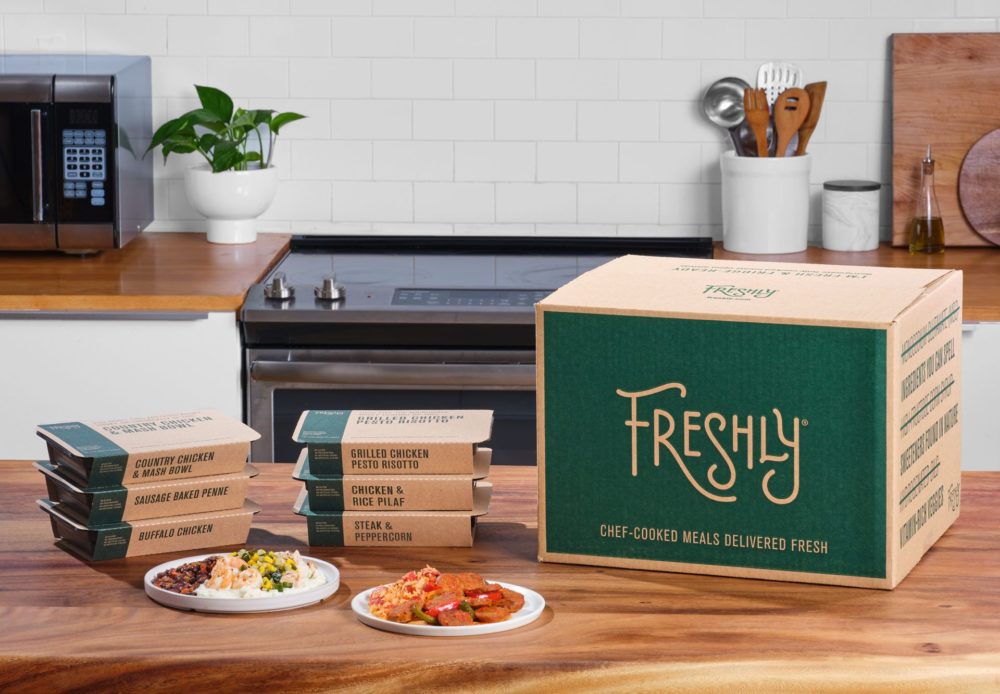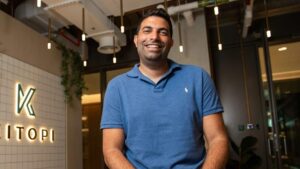Nestlé‘s US unit has acquired food delivery startup Freshly in a deal that could be worth as much as $1.5 billion, depending on the continued growth of the business.
The purchase values Freshly at $950 million, plus “potential earnouts” of up to $550 million “contingent [on its] successful growth.”
Established in Arizona in 2015, the now New York-based startup delivers ready-prepared meals to its customers, who pay via a weekly subscription.
Its meal options — which include “better-for-you versions of classic comfort foods with smart ingredient swaps,” according to a statement — are designed by professional chefs, crafted from fresh ingredients, and can be heated and served in three minutes.
Freshly says its “food philosophy is centered on less sugar, less processed, and more nutrients.” Its meals are gluten-free and single-serve “for effortless portion control.”
In the statement, co-founder and CEO Michael Wystrach said that Freshly’s mission is to “make eating healthy easy by bringing nutritious, high-quality meals directly to customers’ homes.”
“Convenience and nutrition are driving forces in the future of food, and our becoming a part of the world’s largest food company confirms that,” he added.
The startup claims it’s shipping over 1 million meals each week across 48 US states, and forecasts sales for 2020 to reach $430 million.
Without doubt, Covid-19 has had a significant role to play in the growing customer bases and order numbers of food-delivery tech companies, whether they be online grocers, restaurant-ordering apps, or those — like Freshly — that give consumers the ability to have specially prepared meals or customized mealkits delivered to their doorstep.
In the US, the pandemic caused double-digit growth in restaurant takeout orders as locked-down and housebound consumers sought out ‘contactless’ commerce options. Online grocery sales hit an all-time high of $5.3 billion in April – a 37% increase on March’s $4 billion record.
These trends appear to have been reflected in startup investor activity. According to AgFunder‘s Agrifoodtech 2020 Mid-Year Investment Review, eGrocery remained the most-funded agrifoodtech category worldwide in H1 2020, securing $1.8 billion (or 20% of total funding across all categories.) Restaurant Marketplaces raised $960 million, while the related Online Restaurants & Mealkits category netted $243 million.
“Consumers are embracing e-commerce and eating at home like never before. It’s an evolution brought on by the pandemic but taking hold for the long term,” said Steve Presley, Nestlé USA chairman and CEO. “Adding [Freshly] to the portfolio accelerates our ability to capitalize on the new realities in the US food market.”
Mealkit startups arrived on the scene in the US about eight years ago. Will they make it to the 10-year mark? Find out here
In addition to Freshly’s reach and recognition among US consumers — it’s the country’s fourth most-used mealkit platform, according to survey firm Piplsay — Nestlé has had its eye on what it describes as the startup’s “standard-setting” tech and data capabilities.
The Swiss food and beverage giant said the acquisition will allow it to combine what it claims are its “world class research and development capabilities” with Freshly’s “highly specialized consumer analytics platform and distribution network.”
Nestlé previously invested in Freshly, having led the startup’s $77 million Series C round in 2017. Other existing investors that participated in that round included Highland Capital Partners, Insight Venture Partners, and White Star Capital.
In a blog post, White Star Capital said it invested in Freshly because of “the opportunity [it] had to create a new market category […] using a ‘direct to consumer’ business model, which had been successfully used by Dollar Shave Club” – another White Star portfolio company.
“While many food companies delivered the emerging ‘grocery box’ model, our thesis was that people were getting so busy that ready-to-eat food delivery, where the customer did not have to take time to prepare anything, was more compelling in the long run.”
The US-Canadian firm said that Freshly’s acquisition by Nestlé marks its second billion-dollar exit in the direct-to-consumer space after Unilever‘s $1 billion purchase of Dollar Shave Club in 2016.
Got a news tip? Email me at [email protected]





